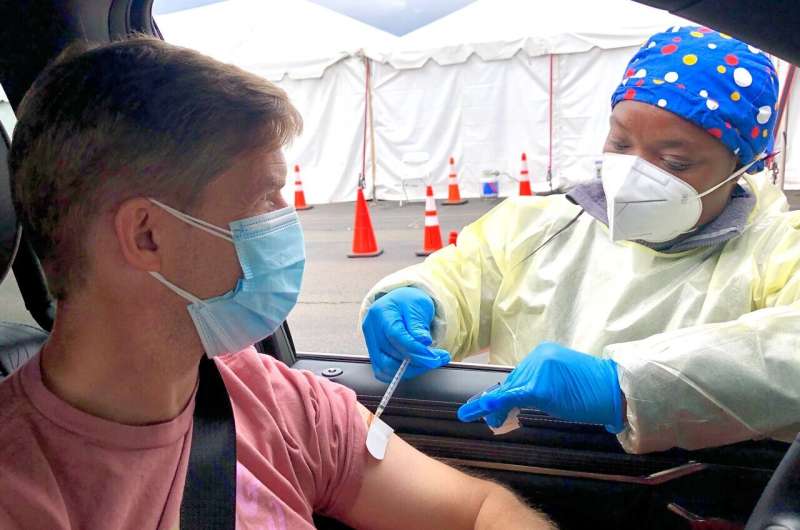Creating a needle-free COVID-19 vaccine

Vaccines are mostly synonymous with needles, an efficient and effective way to provide immunity to myriad infections. As COVID-19 vaccination efforts roll out across the U.S. and the world, some experts believe that a vaccine administered through the nose could be just as effective and easier to administer. A cover story in Chemical & Engineering News, explains the pros and cons of nasal vaccines.
SARS-CoV-2, the virus that causes COVID-19, often enters the body through the nose when a person inhales. From there it encounters a network of mucosal membranes that form the body's first line of immune defense, writes Associate Editor Ryan Cross. The cells of mucus membranes create a special type of antibody, which experts say can provide both mucosal and systemic immunity when triggered by a vaccine that is sprayed into the nasal cavity. In contrast, injectable vaccines only trigger a systemic immune response. The COVID-19 vaccines currently available in the U.S. and Europe are highly effective, but there is not enough supply to inoculate the entire world. So, an intranasal version could help offset the disparity, on top of being easier to use.
However, the mucosal immune system is difficult to study, and intranasal vaccines have not generated much interest in recent years. Only one intranasal vaccine (AstraZeneca's FluMist) has come to market in the U.S., but its higher cost and mixed results compared to the typical flu shot have made it unpopular. In addition, the way the vaccine is administered means that a patient could sneeze out part of it before it's absorbed by the body, making it unclear how much of the dose a person gets. Despite these challenges, scientists and biotech companies are still working to make intranasal vaccines for respiratory illnesses. The pandemic has provided an opportunity to run clinical trials, and at least one company hopes to manufacture and distribute nasal doses of the COVID-19 vaccine by the end of the year.
More information: "Intranasal vaccines aim to stop COVID-19 where it starts" cen.acs.org/pharmaceuticals/va … es-stop-COVID/99/i21


















